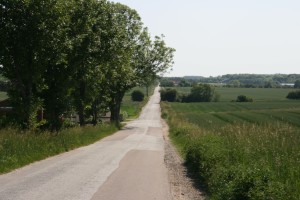RCW Waste Statute Not Applicable to Easement Interference
Recently, an interesting issue developed over the applicability of Washington State’s statute regarding waste caused to an easement. 
The facts are fairly straightforward: an individual owned property burdened by an easement for ingress/egress, which benefited his neighbors. The actual road was considerably smaller than the easement area provided and was located in a rural section of Washington. A dispute arose when he shifted the road to a section of the easement which would allow him expanded use of the remaining unused portion of the property. Needless to say, the road was significantly impacted by this conduct, such that the court required him to replace the road to the prior location (which was essentially running down the center of the easement). To that end, the neighbors expended a significant amount of attorney’s fees. In order to recoup their expenses, they invoked RCW 4.24.630 (Washington’s waste statute) which states that if you wrongfully go onto the land of another and cause injury to the property, you are eligible to recover treble damages, PLUS attorneys fees and costs.
The tripwire for invoking this law is that it is contingent on a form of trespass. Recovery for damage to an easement is different (and impossible, most would say) because if the easement is on the trespasser’s property, then it is virtually impossible to “go onto the land of another” since by definition an easement still remains the property of the burdened estate. Though there is not a wealth of authority in Washington which supports this, however there is a key decision in Colwell v. Etzel, 119 Wn. App. 432, 81 P.3d 895 (2003) where an appeals court criticizes the trial court’s interpretation of RCW 4.24.630. In that case, the trial court said that the statute did not mean that somehad had to physically enter on the land of another, but that trespassing was satifised if someone’s “interest in land” harmed or interfered with. The appeals court dissagreed, saying that the statute is clearly worded, and requires that there be an actual physical trespass before it can be utilzed to recover fees and treble damages. There are other decisions which support this, but they are unpublished (espcially a 9th Cirucuit case — Ehlers v. ConocoPhillips).
There is also the aspect of the law itself in that it is considered punitive by the court. As such, it MUST be construed narrowly. The end result is that there is simply not enough room left for interpretation and the law must be read to mean what it says…only going onto the land of another will trigger RCW 4.24.630. Consequently, if you go onto an easement located on your property and cause damage to it, you may be liable for the damage, but you are NOT liable for attorney’s fees and treble damages under RCW 4.24.630.
https://www.warealestatelawblog.com/rcw-waste-statute-not-applicable-to-easement-interference/trackback/



COMMENTS (0)
Read through and enter the discussion with the form at the end